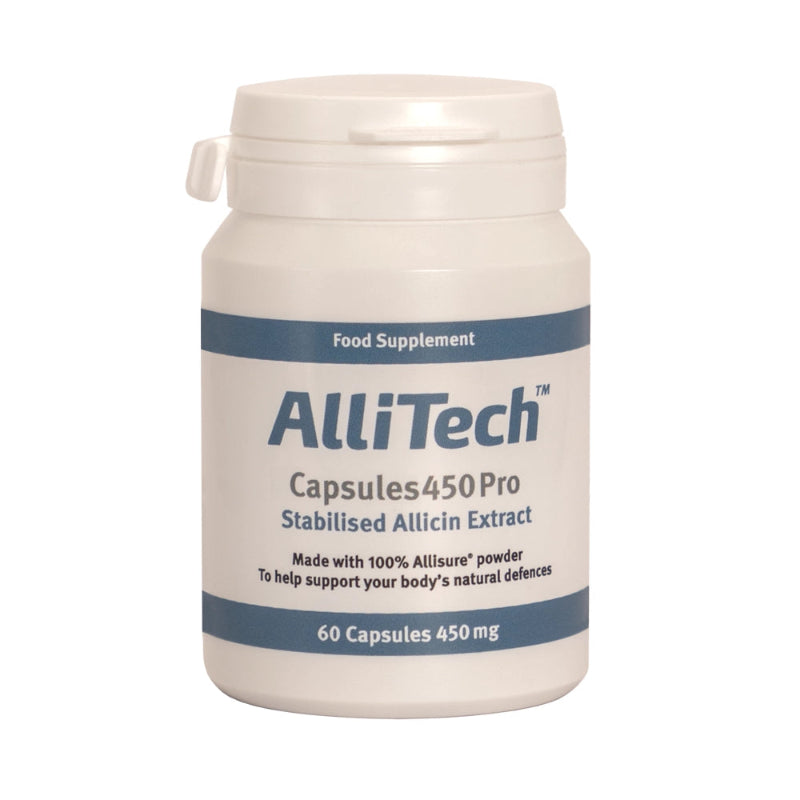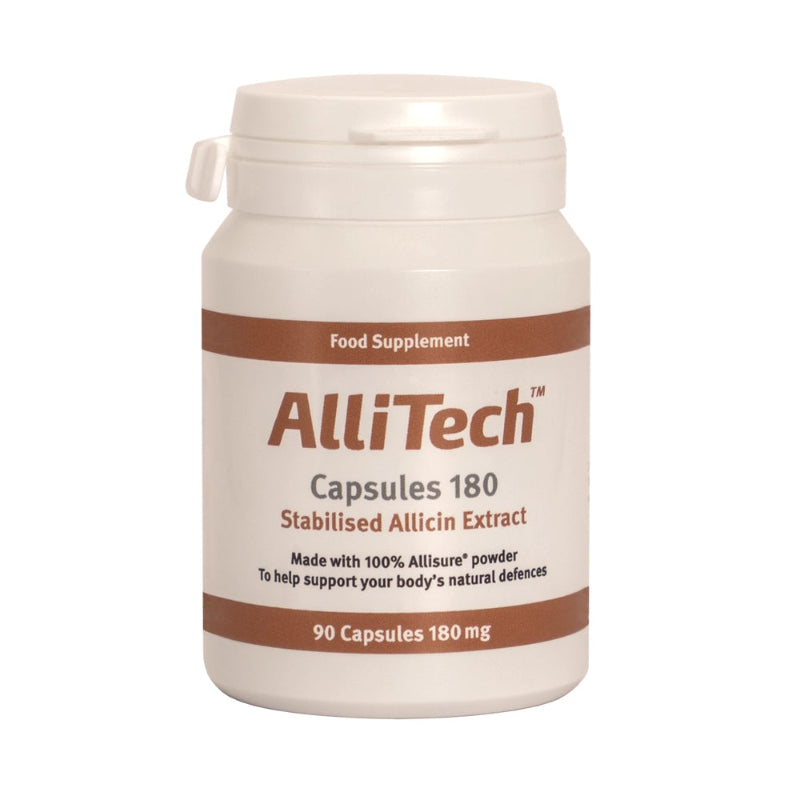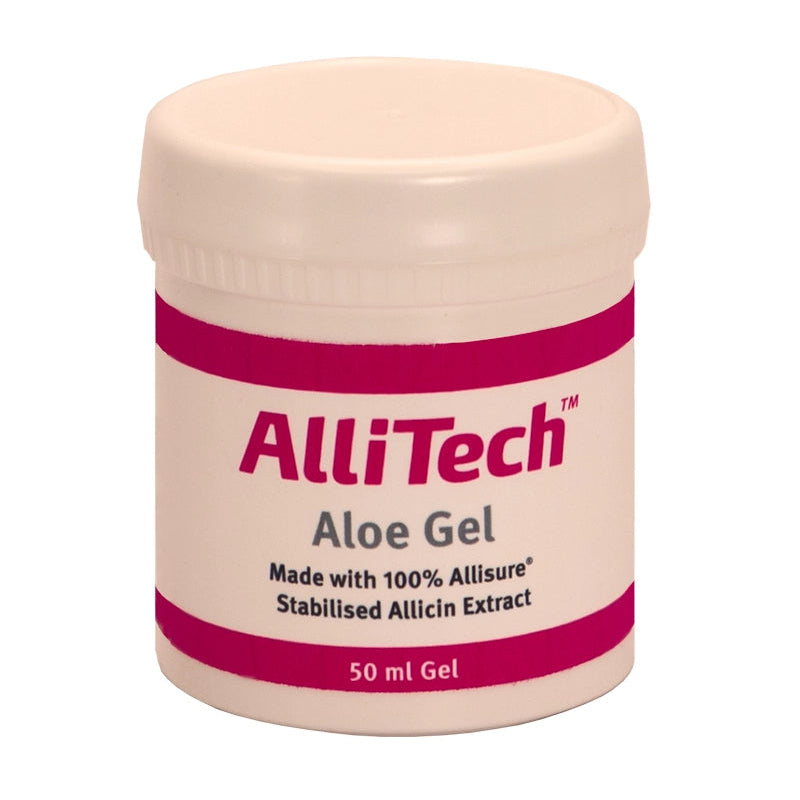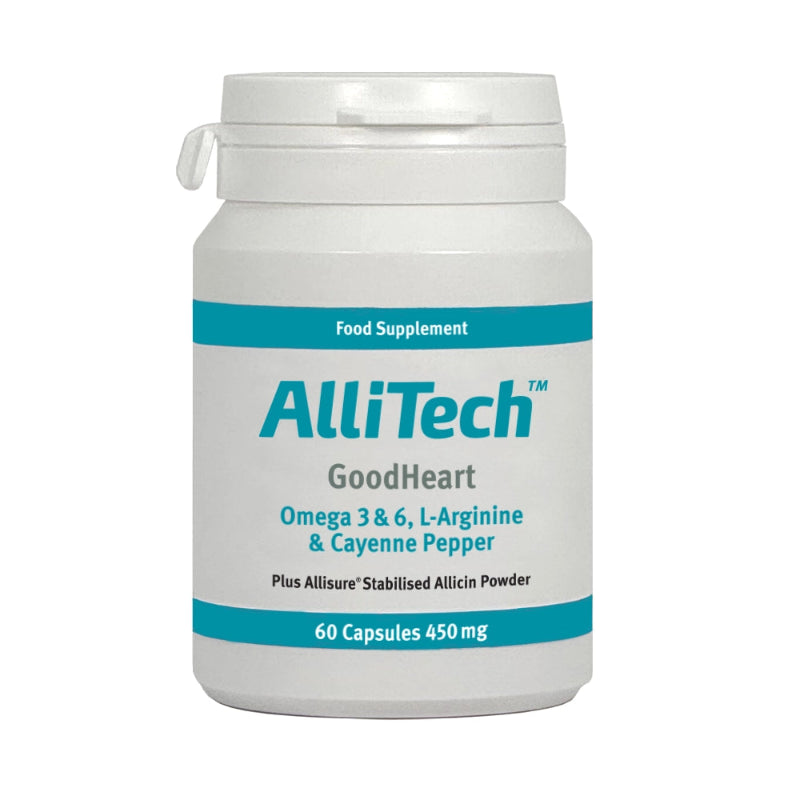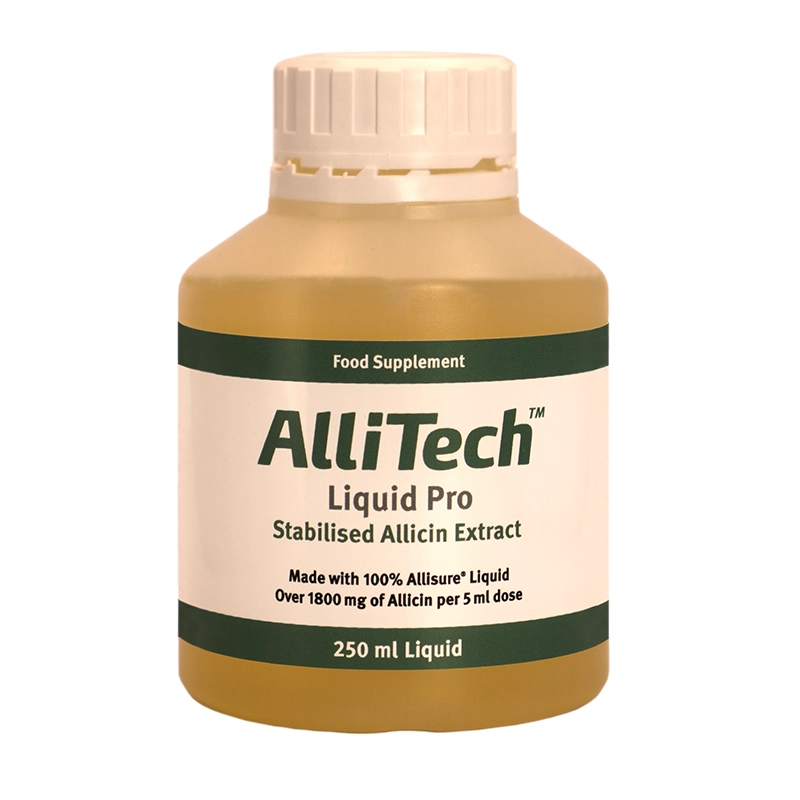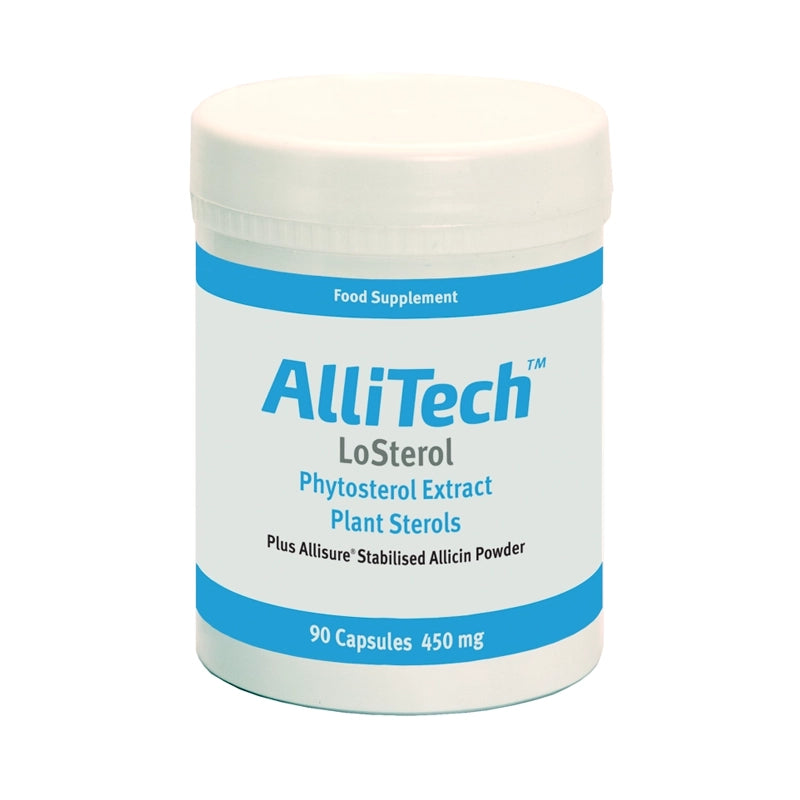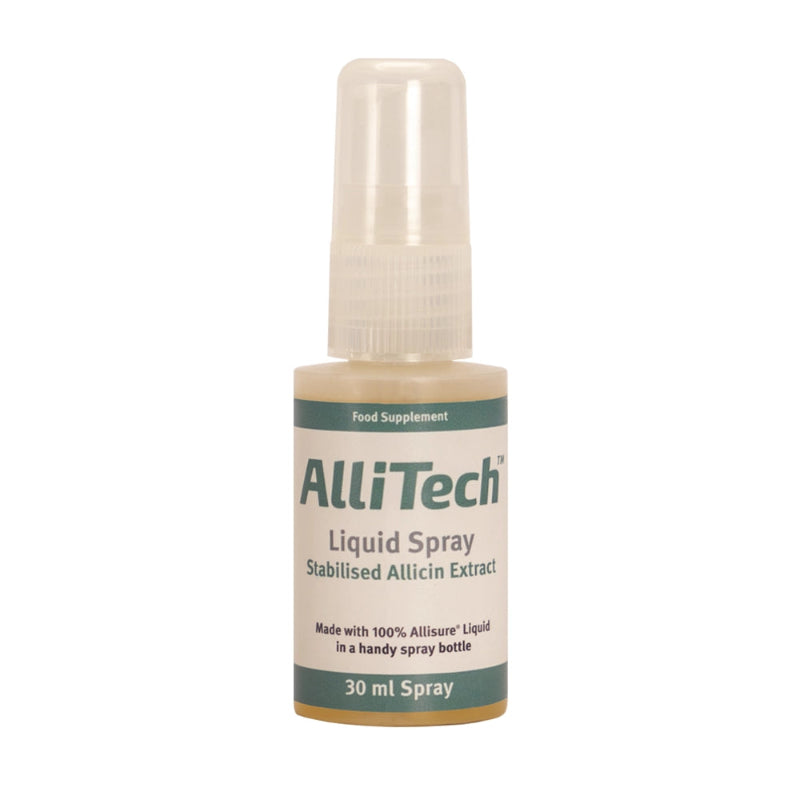What’s the secret behind garlic’s powerful aroma and age-old reputation for supporting good health? The answer lies in allicin — a potent organosulphur compound that doesn’t actually exist in whole, unbroken garlic cloves. Found primarily in garlic (Allium sativum), allicin is only created when the clove is crushed, chopped, or chewed, triggering a reaction between an enzyme called alliinase and a naturally occurring amino acid, alliin. This reaction unleashes not just garlic’s distinctive smell, but also a compound linked to a range of promising health benefits, from antimicrobial action to immune support.
The Science Behind Allicin Formation
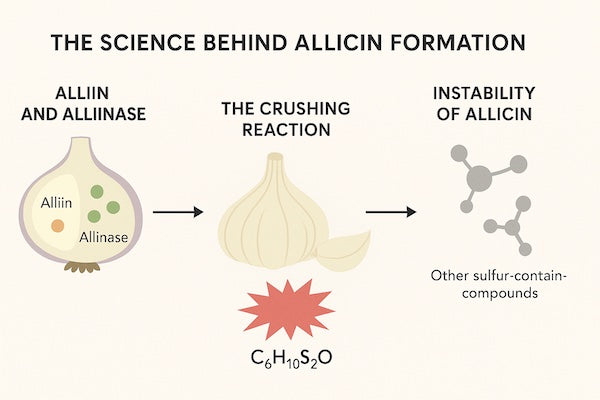
At the heart of garlic’s natural healing power lies a fascinating biochemical reaction. Although garlic has been valued for centuries for its potential health benefits, it's the formation of allicin — a reactive sulphur compound — that sets it apart from other natural remedies. But interestingly, allicin doesn’t exist in whole garlic. Instead, it’s formed only when garlic is physically disrupted, triggering a unique natural process.
Alliin and Alliinase – The Precursor and the Enzyme
Garlic cloves store two crucial ingredients in separate cellular compartments: alliin, a naturally occurring sulphur-containing amino acid, and alliinase, the enzyme responsible for initiating allicin formation. In intact garlic, these two remain apart — a clever evolutionary strategy that keeps garlic stable until it’s needed. Alliin remains inactive, while alliinase lies dormant, simply waiting for a trigger.
The Crushing Reaction – When Garlic Comes to Life
That trigger is mechanical damage. When you chop, crush, or chew garlic, you rupture the clove’s internal cell structures. This mechanical disruption brings alliin and alliinase into direct contact, sparking an immediate chemical reaction. It’s at this moment that garlic’s therapeutic properties begin to unlock.
The Chemical Reaction – Creating Allicin
Once alliinase acts on alliin, it catalyses a rapid enzymatic reaction that produces allicin — a highly reactive thiosulfinate compound. In chemical terms, allicin is expressed as C₆H₁₀S₂O. This newly formed molecule is what gives crushed garlic its distinctive smell and, more importantly, is linked to a wide range of biological effects that have drawn the attention of researchers and health practitioners alike.
The Instability of Allicin – A Fragile Yet Powerful Molecule
However, allicin doesn’t hang around for long. It is notoriously unstable and begins to degrade almost immediately after formation. Within minutes, it breaks down into a variety of other organosulphur compounds, such as ajoene, vinyldithiins, and diallyl disulphide — many of which still retain biological activity, but differ in potency and function.¹ This rapid breakdown means that capturing allicin at its peak is essential if you want to benefit from its full therapeutic potential.
That’s where products like AlliTech come into play. Developed to stabilise and preserve allicin in its active form, AlliTech allows you to benefit from allicin’s natural power without relying on fresh garlic — which can be inconsistent and difficult to dose reliably.
¹ Source: Allicin: Chemistry and Biological Properties – PMC
Potential Health Benefits of Allicin (Backed by Scientific Evidence)

Allicin has garnered attention not just for its intriguing chemistry, but also for its wide range of potential health benefits. While it’s important to approach natural remedies with balanced expectations, research has increasingly highlighted how allicin — especially when stabilised effectively — may contribute meaningfully to human health. Below, we explore some of its most promising effects, supported by scientific findings.
1. Antimicrobial Properties – Nature’s Broad-Spectrum Defender
Perhaps the most well-documented benefit of allicin is its potent antimicrobial activity. Allicin has demonstrated the ability to combat a broad range of pathogens, including bacteria, viruses, fungi, and even parasites.
A study published in Microbes and Infection showed that allicin could inhibit the growth of common bacteria such as Escherichia coli (E. coli), Staphylococcus aureus (including MRSA), and Salmonella enterica.² Allicin has also shown antifungal activity against Candida albicans, a common yeast that can cause infections in humans.
Unlike traditional antibiotics, which target specific mechanisms, allicin’s reactivity with thiol-containing enzymes allows it to interfere with multiple metabolic pathways in microorganisms — making it harder for resistance to develop.²
² An Allium compound with a broad spectrum antimicrobial activity
2. Cardiovascular Health – Supporting the Heart Naturally
Allicin may also play a supportive role in cardiovascular wellness, one of the key areas of concern for adults aged 35 and above. Several studies have explored how allicin-rich garlic extracts can help reduce blood pressure, lower cholesterol, and inhibit platelet aggregation — all important factors in heart health.
For example, research has shown that garlic supplementation may help lower systolic and diastolic blood pressure in individuals with hypertension.³ Allicin appears to contribute by promoting the production of nitric oxide, which helps relax blood vessels and improve circulation.
Furthermore, studies suggest that garlic compounds may reduce LDL (bad) cholesterol and total cholesterol levels, while potentially supporting HDL (good cholesterol).³ Additionally, allicin has been noted for its anti-platelet effects, helping to prevent excessive blood clot formation, which can contribute to strokes or heart attacks.
³ Ried K, et al. “Effect of garlic on blood pressure: a systematic review and meta-analysis.” BMC Cardiovasc Disord. 2008
3. Antioxidant Activity – Neutralising Harmful Free Radicals
Another area of interest is allicin’s role as an antioxidant. Free radicals — unstable molecules generated through metabolism, pollution, or UV exposure — can damage cells and accelerate ageing and disease. Allicin has shown the ability to neutralise free radicals and enhance the body’s natural antioxidant defences.
According to a review in Oxidative Medicine and Cellular Longevity, allicin boosts the activity of antioxidant enzymes such as glutathione peroxidase and superoxide dismutase, helping the body combat oxidative stress.⁴ This antioxidant protection may underpin many of allicin’s broader health benefits.
4. Anti-inflammatory Effects – A Natural Way to Calm the Body
Chronic inflammation is increasingly recognised as a contributor to conditions like arthritis, heart disease, and even cognitive decline. Early studies indicate that allicin may exhibit anti-inflammatory properties, potentially reducing the production of pro-inflammatory cytokines — the signalling molecules that drive inflammation.
For example, laboratory research has shown that allicin may inhibit the activity of NF-kB, a key inflammatory pathway, suggesting potential for managing inflammation naturally.⁵ While more human trials are needed, these findings are promising for individuals seeking alternatives to synthetic anti-inflammatory drugs.
⁵ Dirsch VM et al., “An Allium sativum compound modulates NF-kappa B activity.” Free Radical Biology & Medicine.
5. Potential Anticancer Properties – Early Research Worth Watching
Though research is still in its early stages, allicin has drawn interest for its potential role in inhibiting cancer cell proliferation. Laboratory studies have suggested that allicin may affect cell signalling pathways, induce apoptosis (programmed cell death) in cancer cells, and suppress tumour growth — particularly in colon, breast, and prostate cancer models.
However, it’s important to stress that while these results are intriguing, they are preliminary and largely limited to cell and animal studies. Allicin should not be viewed as a substitute for medical cancer treatments, but rather as an area of active research worth following.
6. Immune System Support – Helping You Stay Resilient
Given its antimicrobial, antioxidant, and anti-inflammatory effects, it’s no surprise that allicin is also associated with immune support. Allicin may help the body mount a more effective immune response by modulating immune cell activity and enhancing the body’s natural defences.
One placebo-controlled study found that participants who took a garlic supplement rich in allicin experienced fewer colds and recovered more quickly than the placebo group.⁶ While this doesn't mean allicin prevents all illnesses, it does point to its role in supporting immune resilience, especially during the colder months.
⁶ Josling P. “Preventing the common cold with a garlic supplement: a double-blind, placebo-controlled survey.” Advances in Therapy. 2001
How to Maximise Allicin Intake

Now that we understand what allicin is and why it matters, the next question is: how can we ensure we’re actually getting the most out of it? Given allicin’s short-lived nature and sensitivity to heat, a few smart preparation techniques — along with the right supplement choices — can make a significant difference in its availability and effectiveness.
The “Crush and Wait” Method – Activate the Allicin Naturally
If you’re using fresh garlic, one of the best ways to maximise allicin production is the “crush and wait” method. As we explored earlier, allicin forms only when garlic’s internal cell walls are broken — so chopping, crushing, or mincing garlic is essential. But timing also plays a role.
Once garlic is crushed, it’s best to let it sit for 10 to 15 minutes before cooking. This allows the enzymatic reaction between alliin and alliinase to fully take place, producing the highest possible concentration of allicin. If garlic is heated too quickly after cutting, this reaction may be cut short — meaning less allicin is formed.
Raw vs. Cooked Garlic – Heat Can Deactivate Allicin
While garlic is a flavour powerhouse in cooking, it’s important to know that heat can destroy alliinase, the enzyme needed to produce allicin. Cooking garlic too soon after chopping, or at high temperatures, can greatly reduce or eliminate allicin content.
That’s why consuming raw or lightly cooked garlic is often recommended for those looking to benefit from allicin’s health effects. For example, adding raw minced garlic to a salad dressing, stirring it into cooked food just before serving, or spreading it onto toast can help retain more of the active compound.
That said, raw garlic isn’t always convenient — or pleasant — for everyone, which is where carefully designed supplements come into play.
Garlic Supplements – Look for Stabilised, Standardised Options
If you prefer to avoid the strong taste (and lingering aroma) of raw garlic, garlic supplements can offer a more convenient way to benefit from allicin — but not all supplements are created equal.
Because allicin is unstable, many garlic supplements on the market contain little to no active allicin by the time they’re consumed. Instead, some rely on alliin potential — meaning the supplement contains alliin and alliinase, which may form allicin once ingested, depending on stomach conditions.
To get the most reliable results, look for supplements that are standardised for stabilised allicin content. Dulwich Health’s AlliTech range, for example, contains bioavailable, stabilised allicin, offering consistent and measurable support without the guesswork of raw garlic or the unpredictability of unstandardised tablets.
Different Preparations – Oils, Powders, and Their Limitations
It’s also worth noting that various garlic preparations — such as garlic oil, aged garlic extract, or garlic powder — differ significantly in allicin content. Garlic oil, for example, is typically made through distillation and may lack allicin entirely, although it still contains other sulphur compounds with some health value.
Powdered garlic, unless specifically processed to retain alliin and alliinase, may also have reduced allicin potential, especially if exposed to heat or moisture during processing or cooking.
Potential Side Effects and Precautions

While allicin and garlic-based supplements like AlliTech can offer a wide range of health benefits, it’s equally important to be mindful of how the body may react — especially in higher doses or alongside certain medications. Below are some key considerations to keep in mind when incorporating garlic or allicin into your health routine.
Digestive Issues – Listen to Your Gut
Garlic, particularly in raw or concentrated form, can sometimes cause mild gastrointestinal discomfort in certain individuals. Common side effects may include heartburn, gas, bloating, or diarrhoea, particularly when consumed in large quantities or on an empty stomach.¹ These effects are generally short-lived but can be unpleasant if not managed carefully.
For those new to garlic supplements or sensitive to rich foods, it may be wise to start with a lower dose and build up gradually, or take supplements with meals to reduce irritation.
¹ Source: Health Effects of Garlic – American Family Physician
Blood Thinning – Be Cautious with Medications
Allicin’s ability to inhibit platelet aggregation — which can support cardiovascular health — may also increase the risk of excessive bleeding in some cases. This is especially relevant for individuals taking anticoagulant or antiplatelet medications such as warfarin, aspirin, or clopidogrel.
If you’re on any form of blood-thinning treatment, it’s essential to speak to your healthcare provider before adding garlic supplements to your routine. They can help determine whether an allicin-based product is appropriate and ensure it won't interfere with your current treatment.
Allergic Reactions – Rare but Possible
Although uncommon, garlic allergies do exist and can trigger symptoms such as skin rashes, nasal congestion, asthma-like symptoms, or in rare cases, more severe reactions. If you experience any unusual symptoms after consuming garlic or garlic-based supplements, it’s advisable to stop use and consult a medical professional promptly.
Drug Interactions – When in Doubt, Speak to a Professional
As with any natural remedy, garlic and allicin supplements may interact with certain medications or pre-existing conditions. This is particularly true for individuals with:
- Bleeding disorders
- Digestive sensitivity
- Immune system conditions
- Upcoming surgical procedures (where reduced clotting can be a concern)
To stay on the safe side, always consult your GP or healthcare professional before starting a new supplement — especially if you're taking prescribed medication or managing ongoing health conditions.
Discover the Power of Allicin with AlliTech
If you’re ready to harness the full potential of garlic for your health, look no further than AlliTech — a premium allicin supplement from Dulwich Health, crafted with care to deliver powerful, natural immune support.
Sourced from fresh garlic and expertly formulated to preserve allicin in its active form, AlliTech offers a concentrated, stabilised dose of allicin extract, renowned for its potent antimicrobial, antioxidant, and immune-supportive properties. Whether you’re looking to bolster your natural defences or support your body through seasonal changes, AlliTech offers a trusted, holistic solution.
Available in capsule and liquid form, AlliTech provides flexibility to suit your lifestyle. It’s ideal for those seeking a natural alternative to synthetic antibiotics, and it can even be used as part of a parasite cleanse or wellness routine — giving your body the tools it needs to stay balanced and resilient.
With a formulation designed for bioavailability and purity, AlliTech is your go-to supplement for:
- Immune system support
- Natural antimicrobial action
- General health and wellness maintenance
- Supporting the body against harmful bacteria, viruses, and fungi
At Dulwich Health, we’ve been helping individuals take control of their health naturally since 1986. With over 30,000 satisfied customers and a legacy of trust, you can feel confident choosing AlliTech as your ally in wellness.
Experience the natural strength of garlic — without the odour or guesswork. Choose AlliTech for reliable, science-backed support that fits your everyday health journey.
Research References
Key scientific and clinical sources that informed this article.
Allicin Chemistry & Biological Properties
Allicin: Chemistry and Biological Properties
Thiosulfinates and garlic biochemistry
Antimicrobial Effects (Bacteria, Fungi, Viruses, Parasites)
Broad-spectrum antimicrobial activity of allicin
Antimicrobial effects against E. coli, Staph, Salmonella
Candida and fungal inhibition
Cardiovascular Health (Blood Pressure, Lipids, Platelets)
Garlic and blood pressure - meta-analysis
Cholesterol-lowering effect of garlic
Antiplatelet properties of allicin compounds
Antioxidant & Anti-inflammatory Effects
Allicin’s role in oxidative stress reduction
Allicin and inflammation (NF-κB modulation)
Immune Support & Common Cold Research
Garlic supplement reducing cold frequency
General Garlic Safety & Side Effects
Health effects of garlic (American Family Physician)
Garlic interactions, bleeding risk, supplement cautions
Supplement-Related Evidence & Stability
Allicin stability, degradation compounds & potency
Enzymatic formation of allicin from alliin and alliinase


